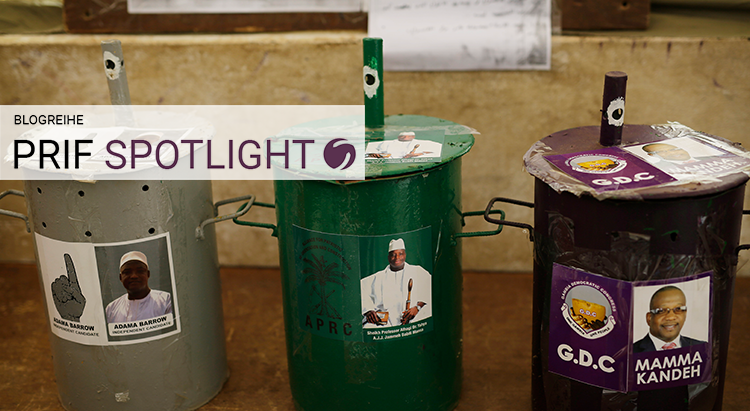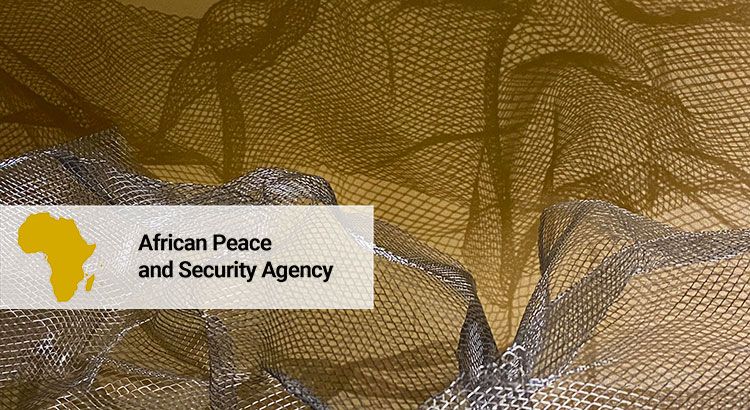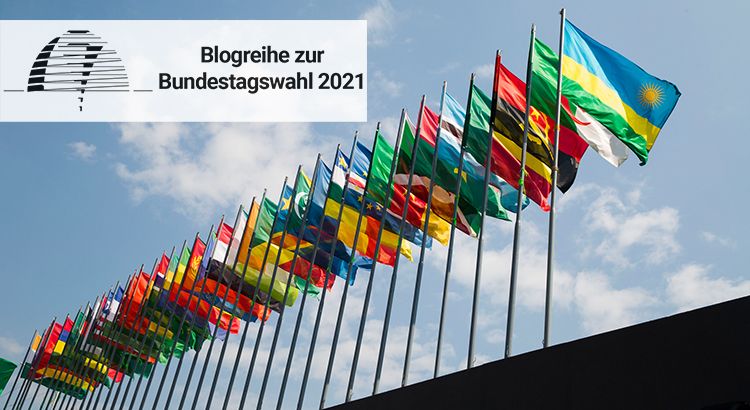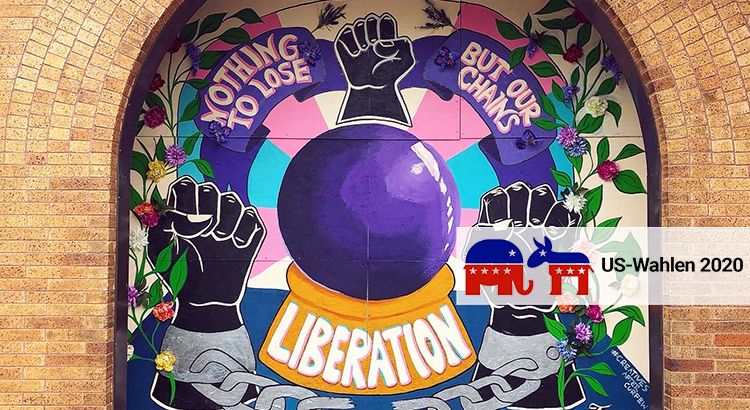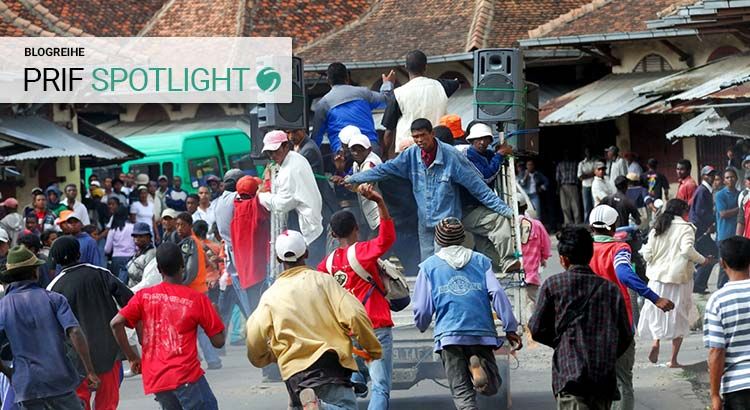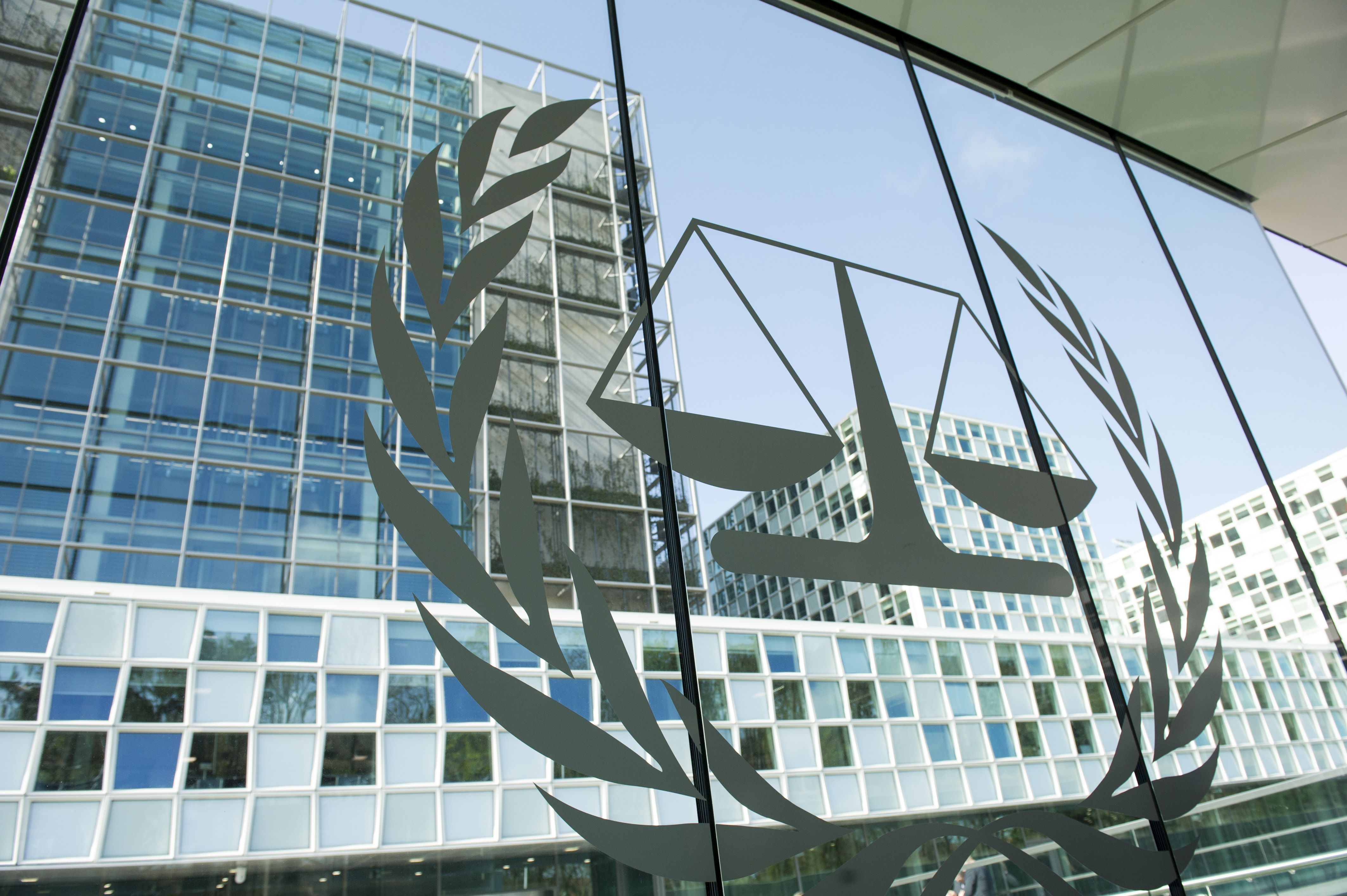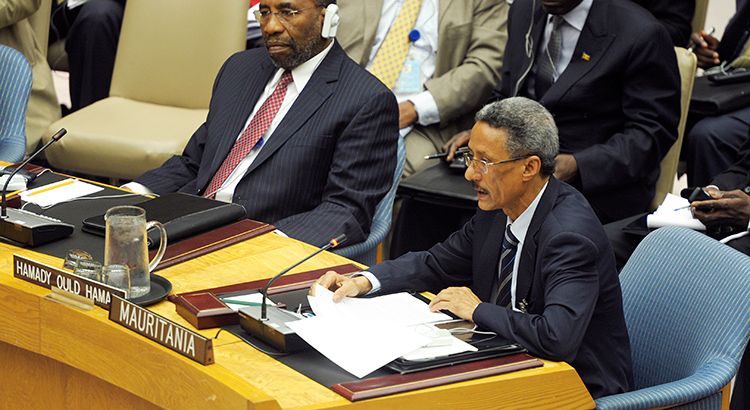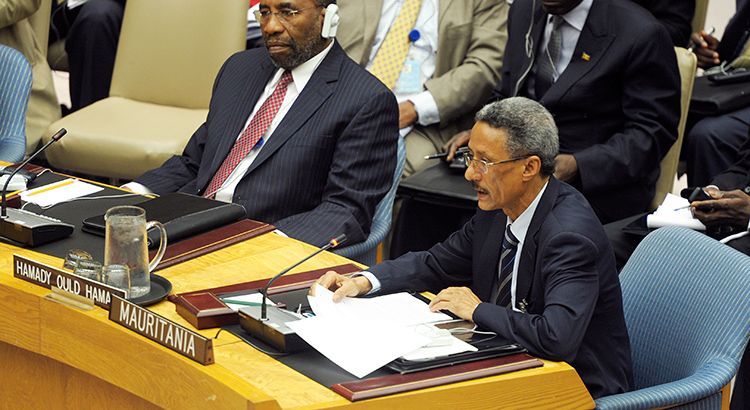Schlagwort: Afrikanische Union
The African Union’s (AU) peacebuilding efforts in The Gambia reflect the organization’s growing responsibility in this field. From 2018 to 2020, the AU deployed the African Union Technical Support Team to The Gambia (AUTSTG). Drawing on interviews and document and media analyses in 2020/2021, this PRIF Spotlight examines this novel mode of engagement and points out an emerging dilemma: The AUTSTG was successful as a technical and pragmatic intervention. However, this only came at the expense of supporting long-term political processes and thus undermined the AU‘s holistic peacebuilding policy.
Enhancing Coordination within the African Peace and Security Architecture
Over the last two decades, African states have demonstrated increasing agency in addressing conflicts by using their capacities at the national, sub-regional and continental levels. This newfound quest for inward solutions was ushered in by the formation of the African Union (AU) in 2001 which was empowered with normative and institutional mechanisms to coordinate African preventive and reactive approaches to crisis situations. Although this African agency is a welcome development, significant gaps remain in terms of harmonising various capacities within the African Peace and Security Architecture (APSA). Further harmonization requires a critical rethinking of APSA’s coordination mechanisms in peace and security.
Zusammenarbeit mit Afrika: Parteipolitische Positionen im Vergleich
In ihren afrikapolitischen Leitlinien von 2019 beschreibt die amtierende deutsche Bundesregierung die Zukunft Europas und Afrikas als „untrennbar verbunden“ und strebt an, die Zusammenarbeit zwischen den Kontinenten zu intensivieren. Abseits der zentralen Themen, die im Vorfeld der Bundestagswahl 2021 den Wahlkampf dominieren, lohnt demnach auch ein Blick auf jene, die weniger im öffentlichen Fokus stehen, darunter zum Beispiel die afrikapolitischen Positionen der Parteien. Wie äußern sich also die Parteien im Vorfeld der Bundestagswahl 2021 mit Blick auf den afrikanischen Kontinent?
Demokratie auf dem Prüfstand: Afrika und die Wahlen in den USA
Der Wahlkampf in den USA läuft auf Hochtouren. Im Gegensatz zu vorherigen Wahlen sind dieses Mal nicht nur deren Ergebnis und mögliche Folgen für die US-Außenpolitik in Afrika von Bedeutung, vielmehr stehen die aktuellen Missstände der US-amerikanischen Demokratie und die Regierungsführung unter Präsident Donald Trump im Zentrum der Kritik in Afrika. Sie lassen das Image der Supermacht als moralisches Vorbild und globaler Garant für liberale Demokratie und Freiheiten bröckeln. Jüngste realpolitische und gesellschaftliche Reaktionen zeigen, wie der afrikanische Multilateralismus davon profitiert.
An Island of Internationalism: The African Union’s Fight Against Corona
Although corona is a global health threat, immediate reactions to contain its spread have mainly followed a logic of national sovereignty, threatening many of the hard-won achievements of decades of international cooperation. In this situation, the African Union (AU) is a rare case of internationalism: it has played an important role in providing coordination, expertise and technical support to its member states, engaging in advocacy, and mobilizing resources. It is imperative to applaud, but more so to support the AU in continuing to play its vital role as one of the few islands of internationalism these days.
Whose Charter? How civil society makes (no) use of the African Democracy Charter
In 2007, African Heads of State and Government adopted the African Charter on Democracy, Elections and Governance. This regional instrument was supposed to “promote the universal values and principles of democracy.” Yet has it had such an effect? With this PRIF Spotlight I shed light on two country cases – Madagascar and Burkina Faso – in which the Charter was (not) used by civil society organizations in their struggle for better democratic governance. If the Charter is to become an effective instrument in the hands of civil society in the future, the African Union will have to invest more in its popularization and active promotion.
Mehr Sicherheit für den Sahel? Warum die Initiative der G5 Sahel Joint Force mehr Zweifel als Hoffnung aufwirft
Sicherheit im Sahel war das dominierende Thema zahlreicher hochrangiger Konferenzen der Vereinten Nationen, der Afrikanischen Union sowie des EU-Ministerrats-Treffen in Brüssel zum EU-Engagement im Sahel Ende Juni. Auch der jüngste Besuch von Kanzlerin Angela Merkel in Westafrika sowie der von Präsident Emmanuel Macron auf dem AU-Gipfel in Mauretanien, zeigen, wie sehr die Region in den Fokus Europas und europäischer Sicherheitsinteressen gerückt ist. Seit Ende 2017 ist dort ein weiterer militärischer Akteur im Einsatz: die G5 Sahel Joint Force, eine von fünf Sahelländern initiierte Einsatztruppe. Ob diese zu mehr Sicherheit in der Region beitragen wird bleibt fraglich.
The International Criminal Court in Difficult Times: Challenges for the 16th Assembly of States Parties
On 26 October 2017, Burundi’s withdrawal from the Rome Statute – the founding treaty of the International Criminal Court (ICC) – took effect. This withdrawal is just the tip of the iceberg of a long-lasting confrontation between the ICC and some African states. When the Assembly of States (ASP) Parties to the Rome Statute convenes today for its 16th annual session in New York, the stakes are high as the ICC faces major challenges. The ASP should take on the dwindling support and criticism from the African Union (AU) as well as African states and bolster the ICC: States Parties should defend the integrity of the Statute, back the ICC’s budget, further outreach activities as well as the regional scope of investigations and strengthen the cooperation with the Court.
Global Governance and Procedural Justice
Worauf beruht die Chance, dass globale Normen und Regelwerke von Staaten und Sicherheitsorganisationen auf regionaler Ebene befolgt werden? Diese Frage steht im Zentrum der Diskussion um globales Regieren. Sie stellt sich jüngst drängender, weil neuere Entwicklungen den Eindruck nahelegen, zentrale Staaten in der nicht-westlichen Welt seien im Begriff, sich von den liberalen Institutionen des globalen Regierens zu verabschieden. Empirische Forschung zum Verhalten Südafrikas und der Afrikanischen Union zeigt, dass sich diese Skepsis in der Wahrnehmung mangelhafter prozeduraler Gerechtigkeit begründet. Für erfolgreiches globales Regieren muss zunächst diese Voraussetzung eingelöst werden.
Globales Regieren braucht prozedurale Gerechtigkeit
Worauf beruht die Chance, dass globale Normen und Regelwerke von Staaten und Sicherheitsorganisationen auf regionaler Ebene befolgt werden? Diese Frage steht im Zentrum der Diskussion um globales Regieren. Sie stellt sich jüngst drängender, weil neuere Entwicklungen den Eindruck nahelegen, zentrale Staaten in der nicht-westlichen Welt seien im Begriff, sich von den liberalen Institutionen des globalen Regierens zu verabschieden. Empirische Forschung zum Verhalten Südafrikas und der Afrikanischen Union zeigt, dass sich diese Skepsis in der Wahrnehmung mangelhafter prozeduraler Gerechtigkeit begründet. Für erfolgreiches globales Regieren muss zunächst diese Voraussetzung eingelöst werden.
